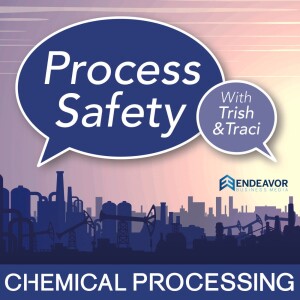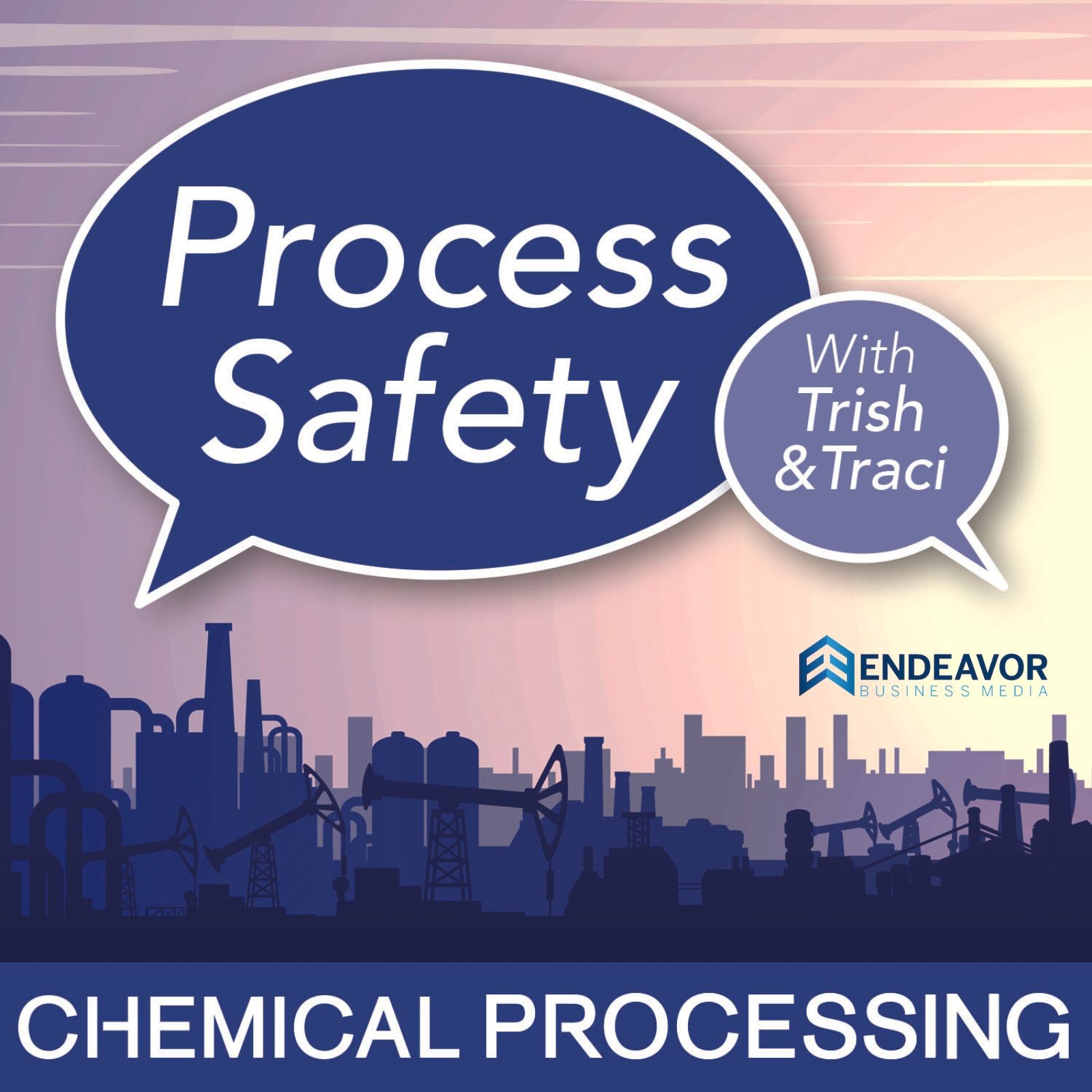Episodes

Friday Sep 29, 2023
Friday Sep 29, 2023
In any facility, we always need to consider the risks and ensure we are managing them with appropriate controls to ensure process safety. Especially when we make changes, we need to ensure that different circumstances are considered.

Tuesday Sep 19, 2023
Podcast: Mastering Risk Management in High-Hazard Industries
Tuesday Sep 19, 2023
Tuesday Sep 19, 2023
In this episode, we discuss risk assessment. The chemical industry is a high-hazard industry. That does not mean it has to be high-risk. We have to effectively manage risk to prevent an incident, and then if prevention fails, mitigate the consequences. If we get this wrong, people die.

Tuesday Sep 05, 2023
Tuesday Sep 05, 2023
In our latest episode, we sit down with Dr. Cheryl Bodnar, one of the brilliant minds behind "Contents Under Pressure," an immersive game designed to teach process safety. Discover the story behind the game and its impact on education and industry.

Tuesday Aug 29, 2023
Tuesday Aug 29, 2023
By following these tips, chemical facilities can enhance the effectiveness of their process-hazard reviews in the Management of Change (MoC) process, minimizing the risk of missing critical safety considerations and ensuring a robust safety management system.

Tuesday Aug 08, 2023
Ep 50 Podcast: Prepare For The Worst
Tuesday Aug 08, 2023
Tuesday Aug 08, 2023
In Case You Missed It edition of Process Safety with Trish and Traci. In Case You Missed It brings the written word to life. In today’s episode, Trish Kerin, the director of IChemE Safety Centre, and Stay Safe columnist for Chemical Processing, will read her column “Prepare For The Worst”, which appeared in the August 2023 edition of Chemical Processing magazine. She explains how safety training saved her from dying during a scuba diving mishap

Monday Jul 24, 2023
Monday Jul 24, 2023
The tragedy exposed various deficiencies in safety management and emergency response. It remains a stark reminder of the importance of rigorous risk assessment, effective control measures, continuous monitoring of safety systems, and fostering a culture where workers feel empowered to stop unsafe work.

Tuesday Jul 11, 2023
Podcast: ICYMI -- Don’t Ignore Weak Signals
Tuesday Jul 11, 2023
Tuesday Jul 11, 2023
Weak signals occur all around us every day, but we often either fail to notice them -- or their significance. It might be an unexpected or unexplainable alarm, a lead indicator that may be easily dismissed as false, or an observation by a worker. Apply the Platypus Philosophy to recognize these signals and make your facility safer.

Tuesday Jun 27, 2023
Podcast: The Importance of Ethics In Engineering
Tuesday Jun 27, 2023
Tuesday Jun 27, 2023
Inspired by a recent study about DuPont and 3M's knowledge of the toxicity of PFAS chemicals, this podcast discusses the importance of transparency and emphasizes the need for professionals to exercise their ethical judgment and stand up for what is right.

Wednesday Jun 14, 2023
Podcast: Lessons Learned From The 2013 Williams Olefins Explosion
Wednesday Jun 14, 2023
Wednesday Jun 14, 2023
The cause of the explosion was traced back to a heat exchanger at the plant. Written procedures, checklists, redundancy and assessing risks for transient and unusual operations can help avoid catastrophe.

Tuesday May 16, 2023
Episode 45: Fast Facts -- Trevor Kletz and Inherent Safety
Tuesday May 16, 2023
Tuesday May 16, 2023
In this Fast Facts edition of Process Safety with Trish & Traci we discuss the lessons learned that led to the four principles of inherent safety as championed by the late Trevor Kletz. Many lives could be saved if the rules are applied.

